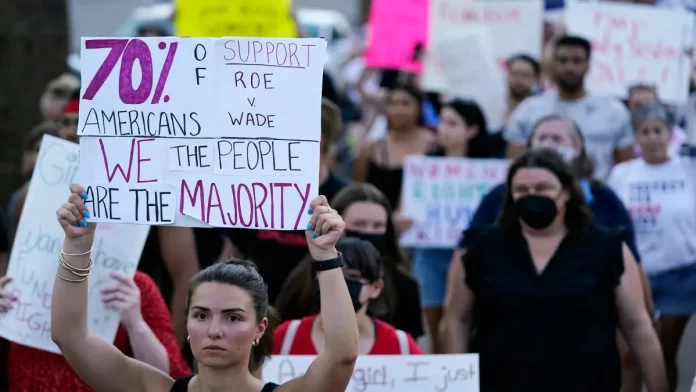Arizona is poised to enact one of the strictest abortion bans in the nation, joining 14 other states in criminalizing abortion at all stages of pregnancy. This significant change follows a recent ruling by the state Supreme Court, which deemed it permissible to enforce an 1864 law that criminalizes all abortions except those necessary to save a woman’s life.
The court’s decision, issued on Tuesday, allows for a two-week grace period before enforcement begins. Notably, the law provides no exceptions for cases of rape or incest.
Projections suggest a drastic decrease in abortion rates in the state, with estimates indicating a decline from approximately 1,100 monthly procedures to nearly zero. Similar trends have been observed in states with comparable abortion bans.
Senator Eva Burch, who shared her personal experience of seeking an abortion due to pregnancy viability issues, criticized GOP lawmakers supporting the ban, emphasizing that the fight for reproductive rights in Arizona continues. Efforts are underway to place the issue on the ballot this fall through a statewide petition campaign.
Planned Parenthood officials affirmed their commitment to providing abortion services for the remaining legal window and pledged support for networks aiding women in accessing abortion services out of state.
However, concerns linger over the potential consequences of the ban, with some fearing that desperate individuals may resort to unsafe methods to terminate pregnancies. Brittany Crawford, a Phoenix-based salon owner and mother of three, highlighted her own traumatic experience with abortion at 18, underscoring the importance of reproductive choice.
While the Center for Arizona Policy welcomed the court’s decision, asserting the sanctity of human life, medical professionals and advocates expressed apprehension over its implications. Physicians now face the prospect of prosecution for performing abortions, with potential penalties ranging from two to five years in prison.
The ruling underscores the polarized landscape surrounding abortion rights since the U.S. Supreme Court overturned Roe v. Wade in 2022. Arizona Attorney General Mark Brnovich, a Republican, played a pivotal role in advocating for the enforcement of the 1864 law, while his Democratic successor, Attorney General Kris Mayes, opposed it, denouncing the decision as regressive.
Former Governor Doug Ducey, who signed the state’s current law restricting abortion after 15 weeks, expressed his disappointment with the court’s ruling, emphasizing the importance of thoughtful policymaking on this sensitive issue.



